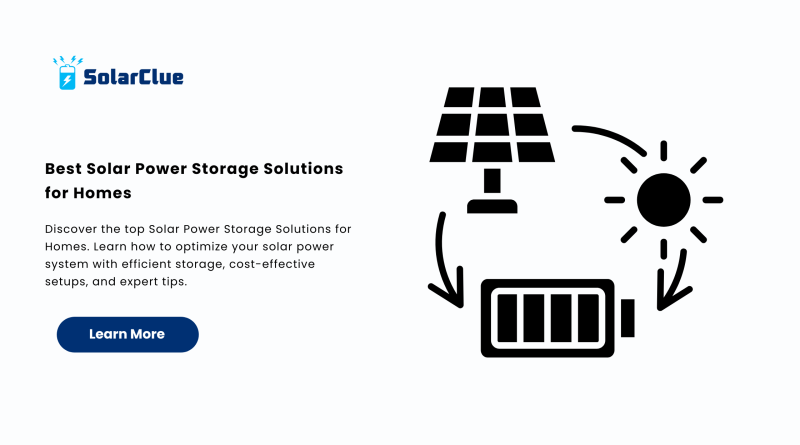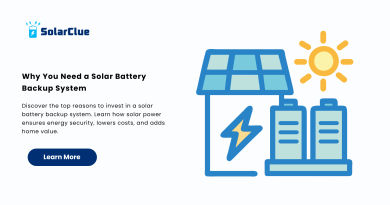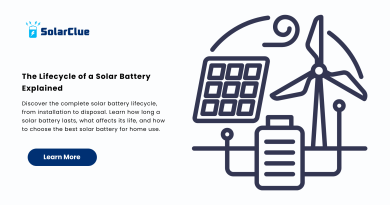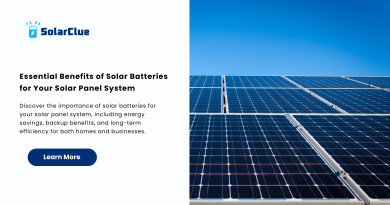Best Solar Power Storage Solutions for Homes
As more homeowners turn to solar power for a cleaner, more cost-effective energy source, the demand for reliable solar power storage solutions for home is growing rapidly. Without proper storage, excess solar energy often goes to waste. With the right system, however, you can harness every ray of sunshine efficiently—reducing reliance on the grid, slashing electricity bills, and increasing your home’s energy independence.
Let’s explore the most effective and widely-used solar power storage solutions, their benefits, and how to choose the right one for your home.
Table of Contents
- 1 What is Solar Power Storage?
- 2 Why is Solar Power Storage Essential for Homes?
- 3 Types of Solar Power Storage Solutions for Homes
- 4 Key Benefits of Home Solar Power Storage
- 5 How to Choose the Right Solar Power Storage System
- 6 Installing a Solar Power Storage System at Home
- 7 Real-Life Case Study: The Sharma Family
- 8 Maintenance Tips for Long-Term Efficiency
- 9 Government Incentives and Subsidies in India
- 10 How Solar Power Storage Adds Value to Your Property
- 11 Overcoming Common Myths
- 12 Future Trends in Solar Storage
- 13 Final Thoughts
- 14 FAQs
What is Solar Power Storage?
Solar power storage refers to the technology used to store the excess electricity generated by your solar power system. This stored energy can be used when solar panels aren’t producing power, such as during nighttime or cloudy days.
Why is Solar Power Storage Essential for Homes?
For most homeowners, solar power is a long-term investment. But without adequate solar power storage, you’re likely to lose out on the full potential of your setup. Storage systems maximize the return on investment by:
- Saving excess solar energy for later use
- Reducing dependency on the electricity grid
- Ensuring energy availability during power outages
- Lowering monthly utility bills
Types of Solar Power Storage Solutions for Homes
Choosing the right storage depends on your energy needs, budget, and lifestyle. Here are the most common solar power storage solutions for home:
1. Lithium-Ion Batteries
These are the most popular and efficient options for solar power storage. Lithium-ion batteries are compact, have a longer lifespan, and charge quickly. Brands like Tesla Powerwall and LG Chem are well-known in this category.
2. Lead-Acid Batteries
A more affordable option, lead-acid batteries have been used for decades. Though they have shorter lifespans and lower depth of discharge compared to lithium-ion, they’re still a viable solution for smaller homes or budget-conscious users.
3. Flow Batteries
Flow batteries use chemical reactions to store and release energy. They are highly durable and scalable, making them suitable for larger households with higher energy needs.
4. Saltwater Batteries
Environmentally friendly and safe, these batteries are a newer innovation in solar power storage for home. They have a longer lifespan and are completely non-toxic.
Key Benefits of Home Solar Power Storage
Energy Independence
With efficient solar power storage, you’re not at the mercy of your local utility. You have complete control over your power usage.
Cost Savings
By using stored solar energy during peak hours, homeowners can avoid high electricity rates and reduce monthly bills.
Environmental Impact
Using solar energy stored for later use reduces reliance on fossil fuels, helping to lower your carbon footprint.
Power Backup
In case of outages, your home stays powered using your stored energy.
How to Choose the Right Solar Power Storage System
1. Energy Needs
Start by calculating your household’s average energy consumption. Larger homes with high usage will need bigger battery capacity.
2. Compatibility
Ensure your chosen storage system is compatible with your existing solar power system.
3. Budget
While lithium-ion batteries cost more upfront, they offer better efficiency and longer lifespans.
4. Warranty and Lifespan
Look for systems that offer a good warranty (at least 10 years) and a long cycle life.
5. Safety and Certifications
Always opt for batteries that meet international safety standards and certifications.
Installing a Solar Power Storage System at Home
Professional Installation
For optimal results, always hire a professional. DIY may seem cheaper but could lead to inefficiencies or even hazards.
Site Assessment
A technician will evaluate your home’s structure, panel setup, and current energy use to recommend the best solar power storage option.
Setup and Integration
The battery system is connected to your solar power system, inverter, and home grid—ensuring seamless energy transfer.
Real-Life Case Study: The Sharma Family
Located in Bangalore, the Sharma family opted for a 5kW solar power system with a Tesla Powerwall battery. Their investment paid off within 6 years, reducing their electricity bill by 85% and giving them reliable power even during monsoon outages.
Maintenance Tips for Long-Term Efficiency
Regular Check-Ups
Inspect connections, battery health, and inverter performance every 6-12 months.
Clean Your Panels
Dust and debris reduce panel efficiency. Clean your solar panels monthly or as needed.
Software Updates
If your system has a smart management tool, keep the software updated for real-time optimization.
Government Incentives and Subsidies in India
The Indian government offers several subsidies for residential solar power systems, including storage. These reduce upfront costs and make adoption easier. Visit your state’s official energy portal for the latest updates.
How Solar Power Storage Adds Value to Your Property
Homes with solar power storage solutions are more attractive to buyers. They’re seen as modern, energy-efficient, and future-ready, potentially increasing property value.
Overcoming Common Myths
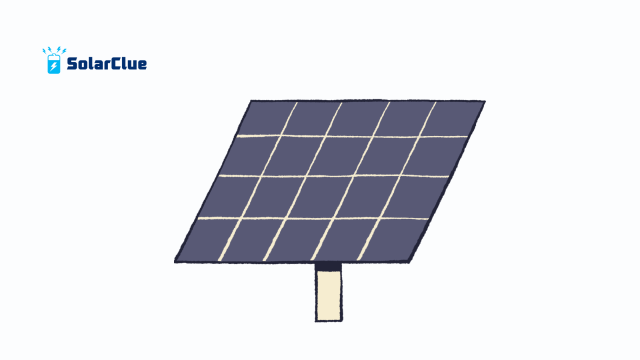
Myth: Storage Is Too Expensive
While the initial investment is high, long-term savings and government rebates make it cost-effective.
Myth: It’s Only for Big Houses
Many systems are scalable and work well for smaller homes too.
Myth: It’s Hard to Maintain
Modern storage systems are mostly automated and require minimal upkeep.
Future Trends in Solar Storage
Smart Battery Systems
AI-powered systems that learn usage patterns and optimize performance.
Community Storage
Neighborhood-level battery storage systems that share energy among multiple homes.
Eco-Friendly Materials
Growth in sustainable battery tech like saltwater and organic flow batteries.
Final Thoughts
Investing in Solar Power Storage Solutions for Home is more than a trend—it’s a smart move for a sustainable future. With the right system in place, you gain control over your energy, save money, and contribute to a greener planet. Whether you’re just getting started with solar, or looking to upgrade your existing solar power system, energy storage is the key to unlocking its full potential.
For more insights and expert guidance on solar technology, feel free to explore our knowledge base at blog.solarclue.com.
Still have questions or ready to make the switch? You’re in the right place. Visit solarclue.com and power your home the smart way!
FAQs
1. What is the best solar power storage solution for home use?
The best option depends on your energy needs and budget. Lithium-ion batteries like Tesla Powerwall or LG Chem are popular due to their efficiency, long life, and smart features. They’re ideal for most homeowners seeking reliable solar power storage solutions.
2. How long do solar power storage batteries last?
Most high-quality solar power storage batteries last between 10 to 15 years. Lithium-ion models tend to have longer lifespans and require less maintenance compared to lead-acid or other battery types.
3. Can I add storage to my existing solar power system?
Yes, most modern solar power systems are compatible with battery storage additions. It’s recommended to consult with a certified installer to ensure smooth integration and optimal performance.
4. Is solar power storage worth the investment for homes?
Absolutely. With rising electricity rates and frequent outages in many areas, investing in solar power storage for home ensures energy reliability, long-term savings, and greater independence from the grid.
5. Are there government subsidies for solar power storage in India?
Yes, the Indian government provides various incentives for residential solar power systems and storage. These schemes vary by state, so it’s best to check with your local renewable energy authority.

